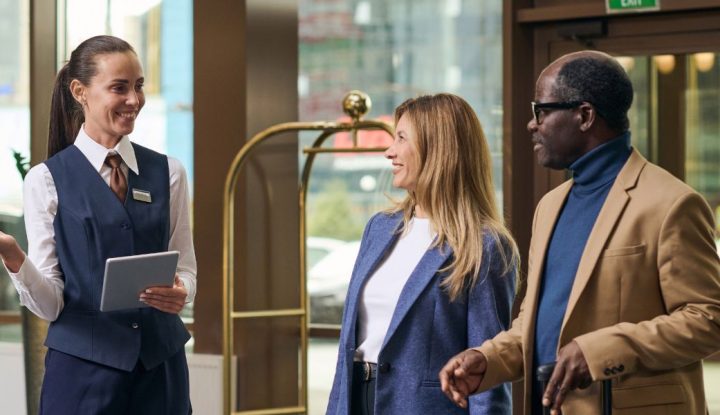Key Takeaways
- Centralized reservations: manages all reservations from a single platform
- Rate management: ensures rate parity across channels
- Cross-channel selling: each available room is offered at the optimal price to the right guest on the appropriate platform
- Real-time inventory: avoids unintentional overbooking with automatic updates for availability
- Seamless integrations: connects your CRS with your existing or new PMS, RMS, GDS, CRM, IDS, OTAs and other channels
Core CRS Functionality
A powerful CRS acts as the heart of your reservation management through innovative and adaptable technology. Here’s how it streamlines your daily operations:
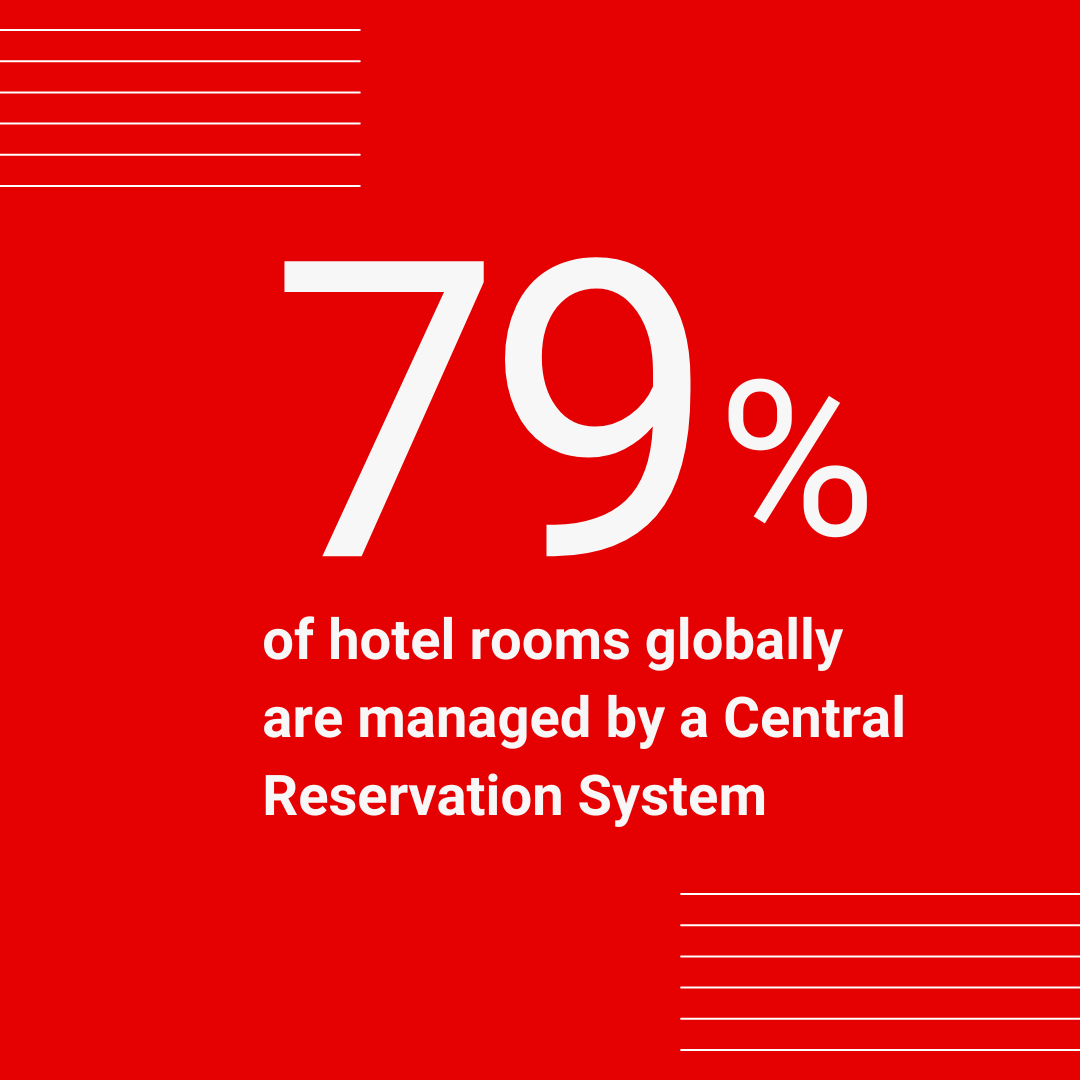
Centralized Reservations:
A streamlined CRS is a single platform for all your reservations, reducing errors and simplifying guest management. No need to update each system individually – one update in the CRS synchronizes everywhere, ensuring accuracy and saving employee time for what really matters: the guest.
Real-time Inventory:
Unintentional overbooking is a nightmare for both you and the guests. An effective CRS ensures this doesn’t happen, automating inventory updates across all channels and eliminating the risk of double bookings and frustrated guests.
Seamless Integrations:
Some CRS support providers even offer integrations to the other systems you use to manage your hotels. Seamless integration with your RMS allows you to receive price updates on schedule to optimize revenue opportunity based on competitive data and your booking performance.
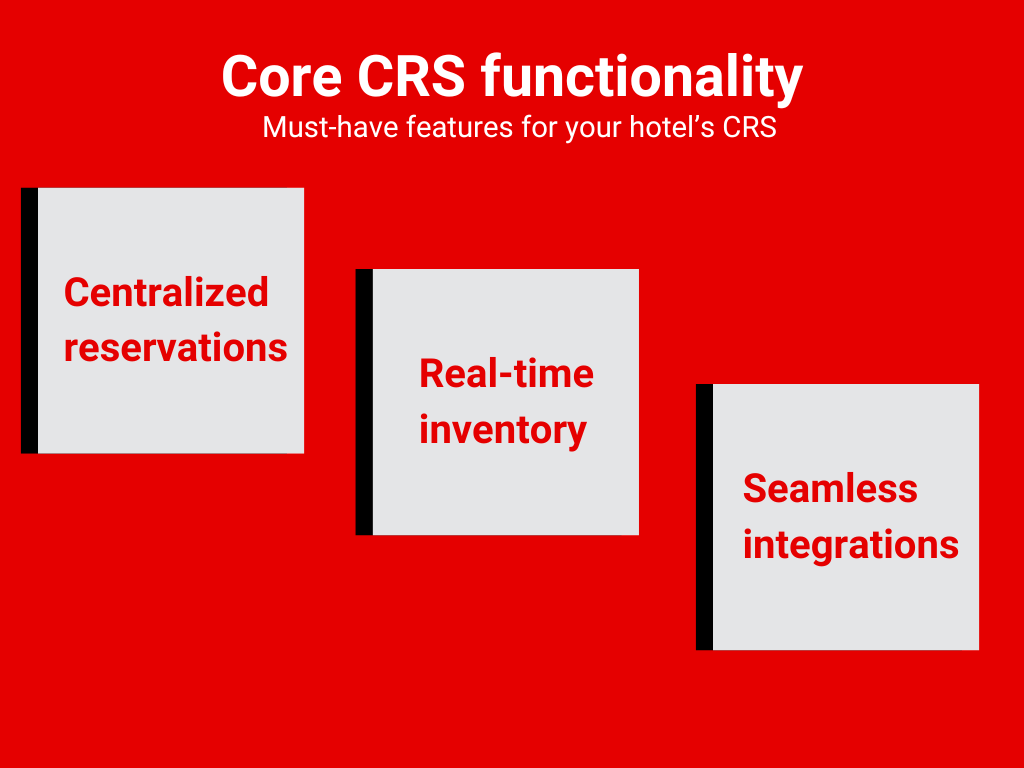
Advancing beyond the CRS: Boosting revenue & guest experience
A modern CRS goes beyond just managing reservations. When you’re picking a CRS provider, think about the additional solutions they offer. If they specialize in only one service, you’ll need to collaborate with multiple tech providers. Opting for a “one-stop-shop” can simplify this process by consolidating your needs with a single provider. Here’s how that provides advanced features to boost your revenue and create returning guests:
Guest-centric solutions:
Consider choosing a CRS provider that also offers a user-friendly online booking engine. Integrating these systems allows guests to make reservations directly on your hotel website, increasing direct bookings and boosting profitability. Certain systems even allow for guests to shop for your hotel on their mobile device, making shopping accessible and easy. Additionally, advanced booking engines can facilitate smart technology options such as online check-in and automated modification requests, reducing front desk wait times and giving guests more control over their stay.
Revenue driven by PMS integration:
PMS Integration provides real time inventory and restrictions with a 2-way sync of reservation data. This includes guest services, spa bookings or restaurant reservations, creating a unified workflow and allowing staff to access all guest information holistically. “Building a successful retailing strategy requires a profound mindset shift that prioritizes how the hotel can maximize its participation in the total trip-related spend,” said Mykola Sheludko, Vice President of Product Management at Sabre. “Hotels must consider what enhancements beyond the room would be in high demand, when and how those enhancements should be offered, and how to drive the total revenue over time.”
Effortless channel management:
Connecting with online travel agencies (OTAs) and other distribution channels can be a complex task. Look for a CRS provider that also offers a channel manager, when the two systems are closely integrated you get one place to go. Your CRS should simplify this process, allowing you to connect with hundreds of OTAs and tour managers with ease.
Next Steps: Choosing the perfect CRS for your hotel
Now that you know important qualities to have in a hotel central reservation system, here are key steps to guide you in selecting the perfect system for your hotel:
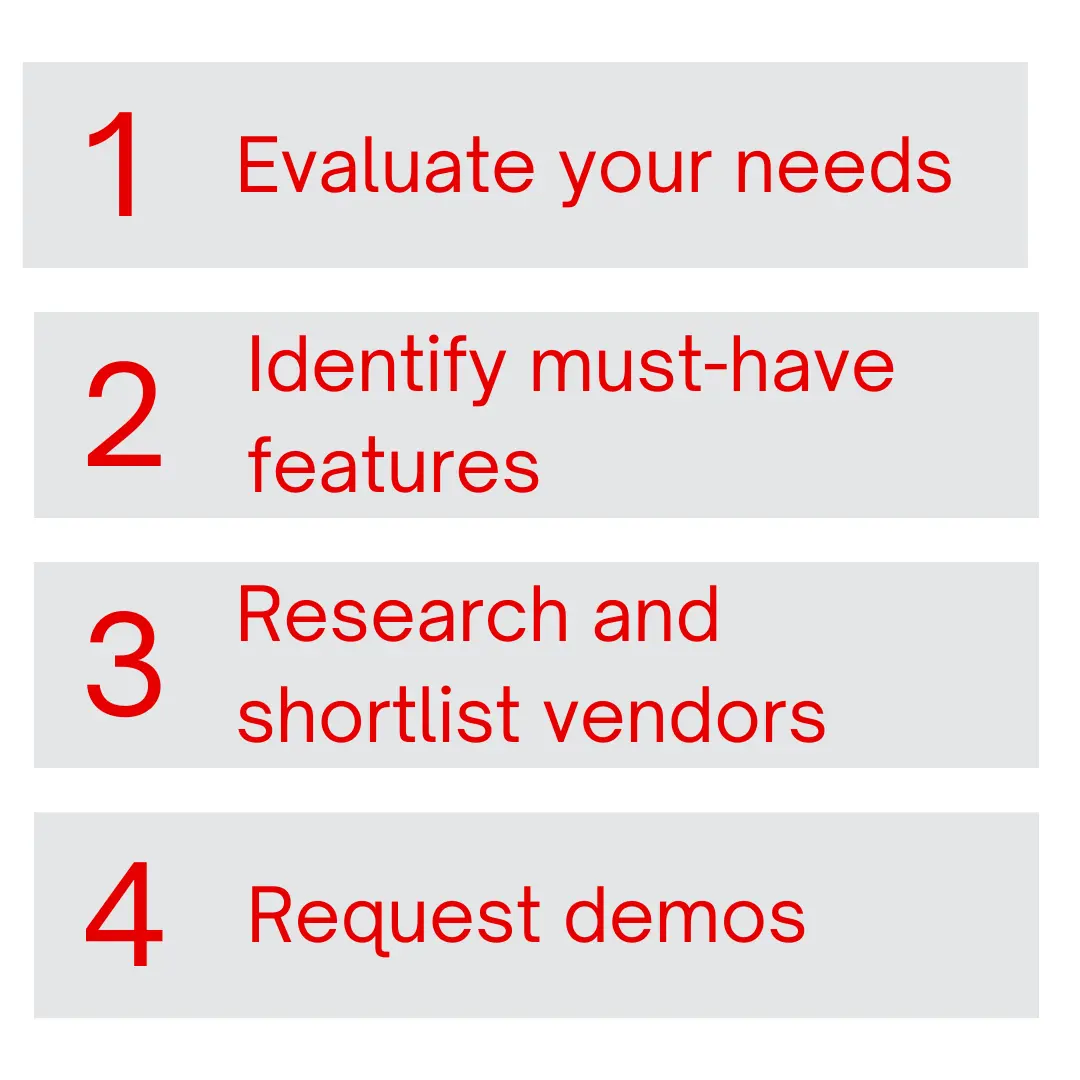
1. Evaluate your needs
Conduct a thorough assessment of your hotel’s needs, considering your property size, guest demographics, distribution channels used and budget. Smaller hotels may need to prioritize essential features like centralized reservations, real-time inventory management and seamless integration, while larger hotels with multiple properties need additional functionality, scalability, integrations and extra security.
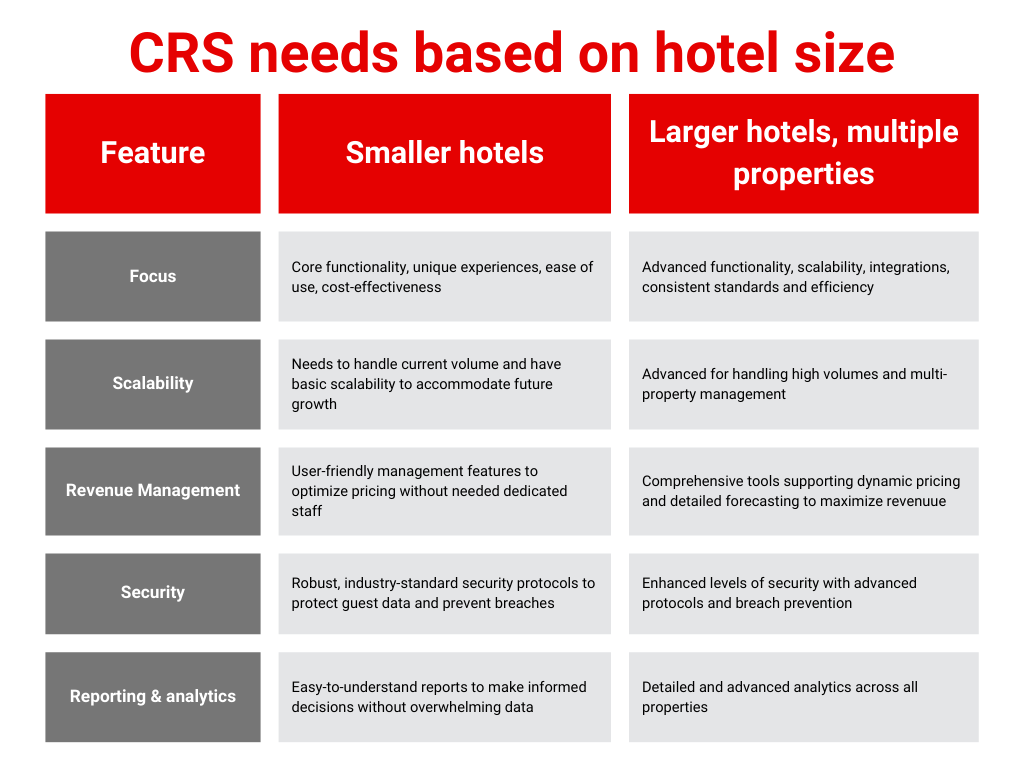
2. Identify must-have features
Create a list of crucial functionalities your hotel needs in a CRS. This will help you focus on systems that meet your specific requirements. While additional features can be beneficial, it’s vital that the CRS addresses your hotel’s primary needs first!
3. Research and Shortlist Venders
Leverage industry resources and online reviews to research different CRS vendors. Shortlist a few systems that align with your hotel’s needs and budget, considering factors like the vendor’s reputation, scalability of the CRS to accommodate growth and the level of customer support offered. Can they help 24/7? Is there a call center, specific help email, or chatbot?
4. Request Demos
Make sure to schedule a demo with the key stakeholders of your hotel to ensure the CRS will meet your hotel’s specific needs. This allows you to experience the system firsthand and assess its usability. When doing this, pay close attention to the interface, reporting functionalities and ease of integration with your existing systems. Notice if the system makes the experience smoother and more efficient for both staff and guests.
Remember:
Selecting a CRS for your hotel is a crucial decision that can significantly impact your hotel’s success and growth. By following these steps and conducting thorough research, you’ll be well-equipped to choose the perfect system that optimizes your operations, maximizes revenue, and creates exceptional guest experiences.
Related Articles:
- Unlocking Excellence: SynXis CRS by Sabre Named Top 3 in 2024 HotelTechAwards « Sabre (sabrehospitality.com)
- Seibu Prince Hotels Worldwide chooses Sabre’s advanced hospitality technology to support significant global expansion « Sabre
- Blue Diamond Resorts Case Study « Sabre Hospitality
- Hyatt Selects Sabre to Enhance Central Reservation System Capabilities, Making the Search and Booking Process Faster for Guests « Sabre
- Unlocking the Power of Guest Reviews With Smart Technology (skift.com)
- 6 reasons why automating hotel operations is a game changer « Sabre (sabrehospitality.com)
Written by Maura Valentine
SynXis®
A central reservation system (CRS) is the heart of a hotel’s business, but choosing a CRS with the right capabilities and support has been a challenge for hoteliers—until now. SynXis® Central Reservation System is the leading global hospitality commerce and distribution platform, enabling hoteliers to Go Beyond with streamlined distribution, centralized control, and greater flexibility.




